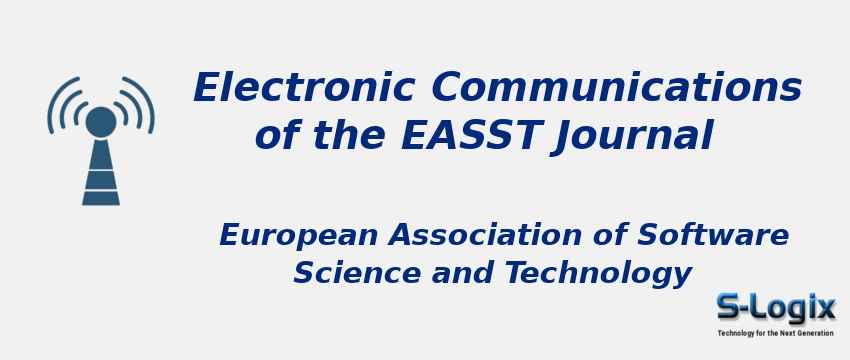Journal Home: Journal Homepage
Editor-in-Chief: Falk Maria Howar,Anna-Lena Lamprecht
Print ISSN: 18632122
Electronic ISSN:
Abstracting and Indexing: SCOPUS
Imapct Factor :
Subject Area and Category: Computer Science, Computational Theory and Mathematics, Software
Publication Frequency:
H Index: 25
Q1:
Q2:
Q3:
Q4: Computational Theory and Mathematics
Cite Score: 0.8
SNIP: 0.174
Journal Rank(SJR): 0.143
Latest Articles: Latest Articles in Electronic Communications of the EASST
Guidelines for Authors: Electronic Communications of the EASST Author Guidelines
Paper Submissions: Paper Submissions in Electronic Communications of the EASST
Publisher: European Association of Software Science and Technology
Country: Germany
